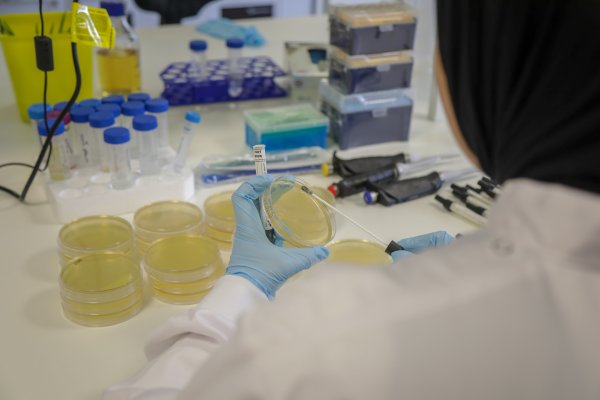About GRAM
The Global Research on Antimicrobial Resistance (GRAM) Project brings together researchers from around the world to develop the evidence base for understanding one of our most pressing global health challenges, the threat of antimicrobial resistance (AMR).

GRAM is a partnership between the University of Oxford and the Institute for Health Metrics and Evaluation (IHME) at the University of Washington. It was formed to provide rigorous quantitative estimates of AMR burden; increase global awareness; boost surveillance efforts, particularly in low- and middle-income countries (LMICs); and to promote the rational use of antimicrobials worldwide.
GRAM was formed in 2017 by the UK Fleming Fund, Wellcome Trust and the Bill and Melinda Gates Foundation. It aims to support policy makers in achieving future reductions in mortality, morbidity and other impacts associated with AMR.
At IHME, GRAM is led by IHME Director Chris Murray, along with Professor Mohsen Naghavi of IHME. Within the University of Oxford, GRAM is led by Dr Benn Sartorius as Principal Investigator (PI) and Prof Christiane Dolecek as co-PI, based at the Centre for Tropical Medicine and Global Health, in the Antimicrobial Consumption and Resistance Burden Estimation (MICROBE) research group. Professor Andy Stergachis is a Senior Investigator contributing expertise at the University of Washington. For more information about the team visit the GRAM website.
GRAM research
GRAM estimates the burden of AMR worldwide using data, health statistics and geospatial maps. The team is adapting and refining methodologies established in IHME’s ongoing Global Burden of Disease (GBD) study to build an evidence base of bacterial AMR across the globe, with corresponding visualisations.
GRAM investigates the prevalence of resistance in bacterial pathogens, and also models covariates relating to the spread of AMR, including global antibiotic consumption. GRAM also examines the mortality and morbidity burden of resistance across clinical syndromes from 1990 to the present in all 204 countries and territories included in the GBD study. These findings, which are now available as interactive data visualisations, will assist the global research community and policy makers in tailoring interventions at local, national and international levels.
For more information about this research visit the GRAM website.

